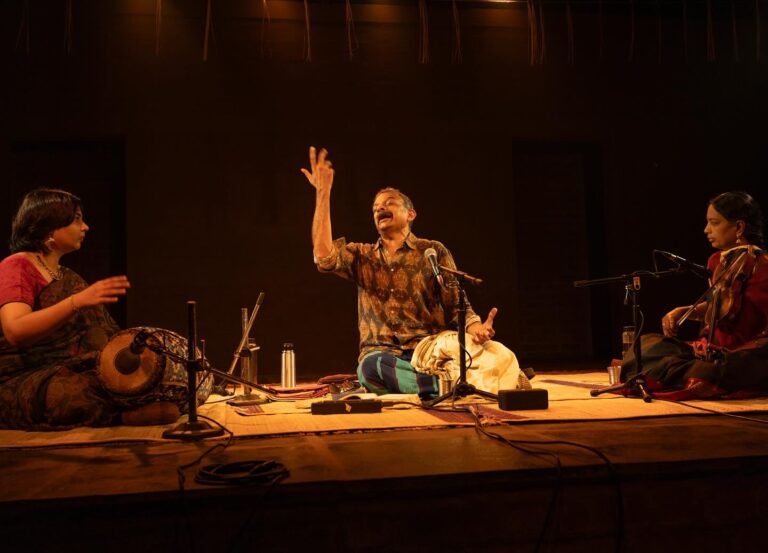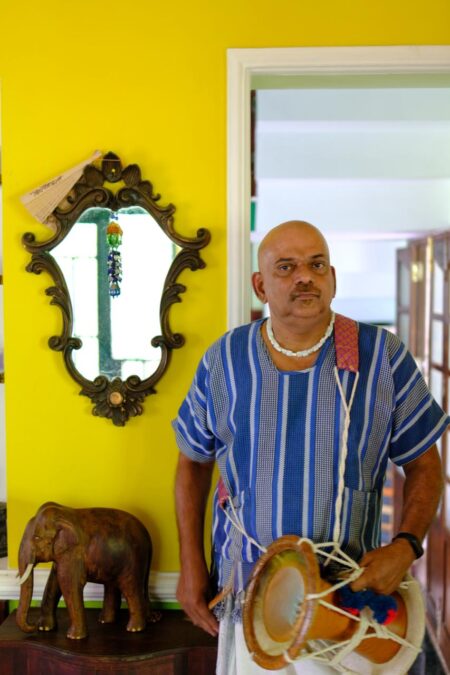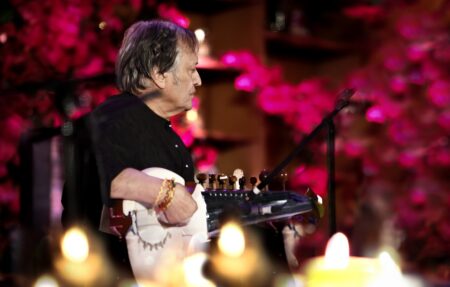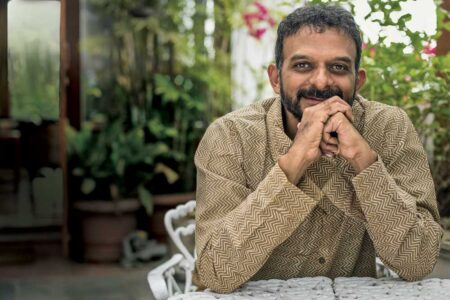T M Krishna’s singular spontaneity set the tone for an unforgettable evening.
Inauguration of the refurbished auditorium of Natanakairali, Kottichetham, at Irinjalakuda, Trissur, recently witnessed varied cultural programs, among which T M Krishna’s vocal concert attracted a larger-than-usual crowd despite limited publicity.
T M Krishna’s concerts are with singularities galore. His métier is spontaneity that springs from the meditational mood right from the moment he is seated on the platform. And an enchanting melody is the outcome. It would seem that he is singing for himself and not for the audience – not a conventional approach. Sometimes he laughs to himself. But the audience on the other hand has their eyes and ears riveted on him, for the music that flows from him is truly delightful.
Six compositions in two-hours-and-a-half – one can imagine the enormity with which each was treated. For Krishna, each one is a main, judging from the treatment meted out to it. Also, the ragas are select and familiar to the listeners which make them comfortable.
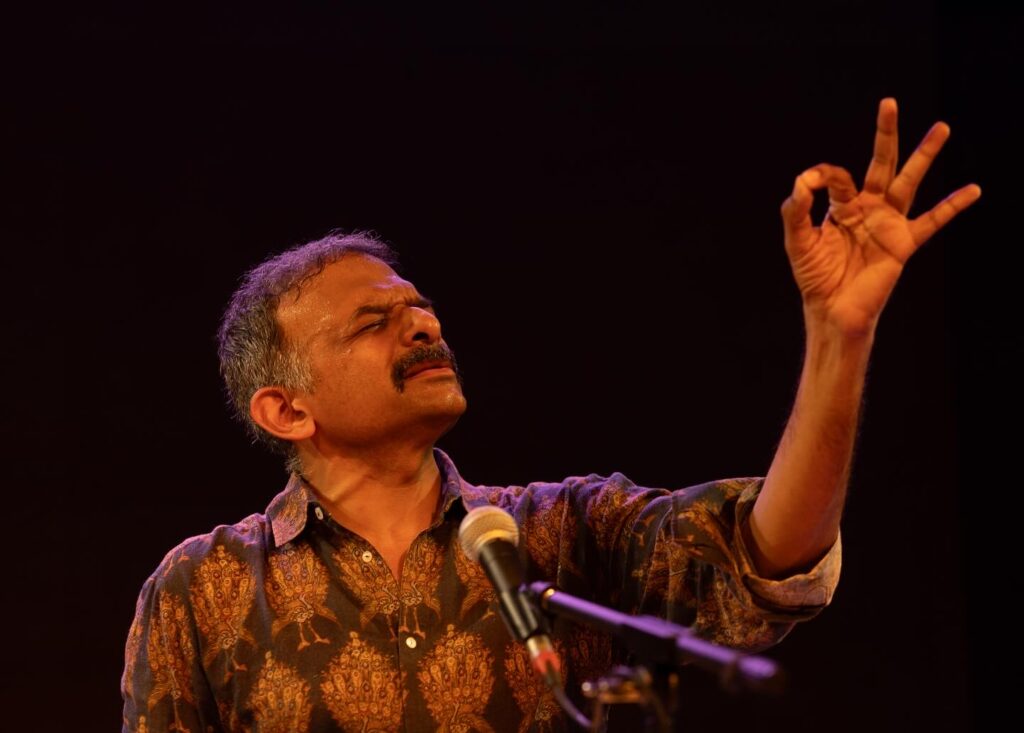
Alap of Sahana was relatively short and the composition was Thyagaraja’s Emana dechevo in rupakam. A demarcating feature was the dynamics of the rendition which he judiciously applied in the subsequent ones too. Anupallavi, Na mathalu vinavo was taken for niraval and he seemed to glide the three octaves with relative ease. Exploration of swaras was mainly in the mantra sthayi extending up to shadjam which was quite delectable.
Soon he switched to Varali ragam aalpana that was mostly in mantra sthayi. But it was short as he moved on to tanam. Nalinakanthi bloomed as soon as he explored the raga mainly in tara sthayi. Composition was the much sought-after Manavi nalaginca radate marmamella delpedane manasa.
How far Krishna regards his accompaniments was evident as he allowed the violinist to essay the raga Kharaharapriya. Dr. R Hemalatha did a splendid job by executing it in a most commendable manner. Krishna enhanced its appeal with a virutham. Once he began the most popular Thyagaraja number Chakkini raja, the audience broke into a wild applause. While, myriad sangatis decorated the Anupallavi, kantiki sundaramagu rupame was taken for niraval.
Tani by Aswnini Sreenivasan on mridangam was especially notable for the élan with which she drummed up various nadais. In the absence of any other percussion support, she did a marvelous job single handedly. Further, her soft tapping as well as the posture of composure during the pakkam were worth mentioning. Admittedly, her contribution for the success of the concert was significant.
While Krishna proved an aficionado of Thyagaraja from the first three selections, he next ventured into the Perumal Murukan composition in Kapi, Nee Mattumey Yen Nenjil Nirkkiraai. “You only stay in my heart; Trying to erase, to forget, but you remain; Trying to rub, to wipe, but you stay; Your light shines on me”. The message and its emotion were well conveyed by the raga. Thus for the first time, the music lovers of Irinjalakuda had a taste of the composition that had attracted much criticism from the orthodox connoisseurs.
The Swati jawali that followed, “Saramaia maatalendo” in Behag, was soothing. Krishna concluded with a Basava Vachana, “Thandai neenum tayi neenum” in Hamsadhwani.
Photo Credit: Manoj Parameswaran

